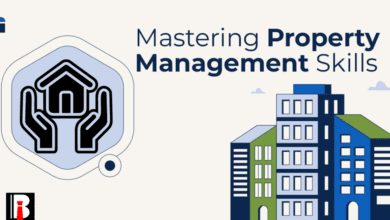Challenges of Managing A Family-Owned Business
The challenges of running an extended family company are different. A few of the difficulties that family businesses address involve managing intimate connections with business factors, speaking effectively, solving disputes, planning succession, and setting established responsibilities and limitations. Keeping a meritocratic workplace and dealing with generational gaps simultaneously takes work. These obstacles can be overcome through preparation, communication, and professionalism. Successfully managing a family-owned firm’s complexities often requires outside experts’ assistance.
Quick Shortcut Headlines
Family-Owned Business Challenges:
There are several special difficulties in managing an organization that belongs to a family. Family engagement often has positive outcomes due to factors like similar values and dedication, but challenges may also develop. Here are some of the most typical problems encountered by family-run enterprises:
Communication and Conflict Resolution
Efficient family business administration depends upon open interaction lines and a peaceful resolution of conflicts. In such businesses, the dynamics of human connections frequently overlap with those of the business, creating new and interesting difficulties. Avoiding arguments, encouraging openness, and ensuring everyone’s expectations are aligned all hinge on open and honest communication within the family.
Open discourse, attentive listening, and the free flow of information are all made easier when established communication routes are in place. Conflict resolution mechanisms are also crucial for handling any ensuing arguments or tensions. By instituting fair and unbiased systems, family companies can keep disagreements from growing and hurting relationships. A company’s overall stability and performance can be bolstered by its employees’ capacity to communicate openly and honestly resolve conflicts.
Succession Planning

Whenever maintaining a family company, it is particularly crucial to be concerned for the future of the company. To navigate succession successfully, one must give it serious thought, maintain open lines of communication, and plan. Successors can come from within the family or from the outside, but finding them requires a careful evaluation of each candidate’s qualifications, experience, and dedication to the company’s success.
The transition will go more smoothly if roles, responsibilities, and deadlines are clearly defined in advance. Careful succession planning can reduce the likelihood of leadership voids, internal strife, and company interruptions. Family enterprises may ensure their survival and prosperity by grooming leaders of the next generation and facilitating a seamless transition of power.
Balancing Family and Business Dynamics
Running a family-owned company, it may prove challenging to maintain a balance between interpersonal and professional connections. When personal and professional commitments overlap, it’s not common for difficulties to arise. It involves setting boundaries, defining duties, and maintaining lines between individuals open. Individuals of the same family collaborating in business must be ready to differentiate between their personal and professional lives.
Weekly and open discussions with relatives can help solve conflicts and make working conditions a better place for participants. Impressions of nepotism and other favoritism can be reduced by creating a system that utilizes merit for advancements and employment. Maintaining peace at home while advancing your career demands you to put aside your feelings and think rationally about your professional decisions.
Professional Development and Meritocracy
Profitable family-owned enterprises emphasize professional development & democracy. Friends and family can have important positions, but fostering an atmosphere that acknowledges and encourages individual talent and accomplishment is still essential. Recruiting and keeping the best employees requires setting up rigorous development programs, mentoring opportunities, and objective standards for performance assessment.
Treating everyone equally regarding promotion and compensation, regardless of blood relationships, is crucial. Family-owned firms can help motivate and develop their staff by emphasizing merit rather than nepotism. It is essential to maintain an agreement between involvement from family members and an attachment to professional development and equality.
Governance and Structure
Effective family businesses possess solid management and organizational structures. For effective choice-making, responsibility, and long-term sustainability, it is essential to set up explicit processes for governance, including a well-defined organizational framework. Possessing straightforward and consistent rules, procedures, and standards can help small businesses succeed. It involves documenting the responsibilities of each person, the decision-making process, and the method for resolving conflicts.
Implementing an experienced also transparent governance structure aids in isolating business operations from relationships with individuals, lessens the likelihood of bias and nepotism, and boosts the organization’s credibility. The business’s ability to react to shifting market conditions and maintain the company’s basic principles and legacy depends on the frequency with which governance processes are reviewed and revised.
Financial and Emotional Boundaries
With the purpose of production and comfort of conscience in a household or enterprise, you must set and maintain firm economic and mental limits. Implementing sound accounting processes and never mixing corporate and private funds is essential for a healthy financial future. It prevents misrepresentation of financial data, speeds up budgeting, and reduces the likelihood of arguments over money.
Family members, emotionally speaking, need to keep business decisions separate from personal ones. Making tough decisions like firing employees, shifting focus, or expanding a firm can stir up many feelings. Keeping business and family life separate helps everyone makes more objective decisions, promotes a more professional atmosphere at work, and ensures the success of the family firm in the long run.
Managing Generational Differences
Although several relatives work together within a firm, bridging the divide between generations may be challenging. Different generations have different norms, priorities, and strategies. It’s crucial to encourage honest communication and mutual regard among family members to negotiate these issues. Interaction and sharing of information is crucial for effectively utilizing skills and expertise across generations. It’s important to value the experience of older generations while remaining open to new ideas and trends in the industry.
Encouraging mentorship programs and providing opportunities for lifelong learning can help bridge the generational gap and foster a culture of continuous growth. Family businesses can benefit from the experience of several generations by recognizing the value of different points of view and working together to discover solutions.
Conclusion
People must carefully consider and initiate preventative measures when conducting a family company. Essential to an organization’s achievement and continued existence involves handling issues such as interpersonal interaction and dispute conclusion, succession planning, maintaining the company and family dynamics, promoting professional development and a system of merit, creating administration and framework, and managing differences between generations. Family-owned firms can achieve sustainable growth over the long term, maintain family values in the workplace, and promote workplace harmony by recognizing and adapting to these issues.




